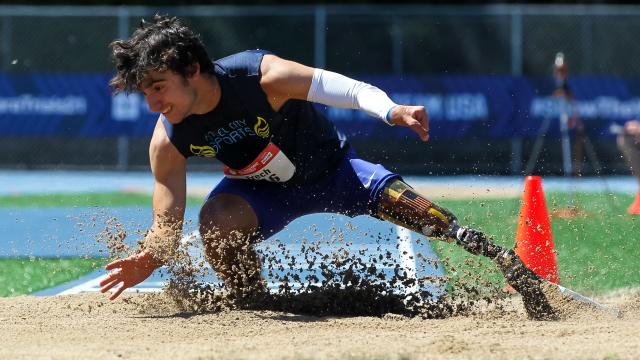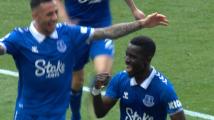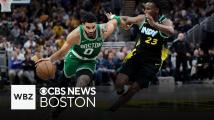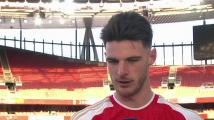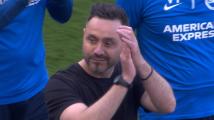The Rush: Paralympian Ezra Frech takes his talents to the track in Tokyo
Paralympian Ezra Frech is the youngest athlete representing Team USA Track and Field in Tokyo. The Los Angeles native reveals how he finds strength in his disabilities, why community-building is part of his life’s work, how an extra year of training due to COVID impacted his career, and the point at which he changed his mindset, setting him on a path toward excellence. Head to Angel City Sports to join Ezra’s efforts to provide sports access to people with physical disabilities or to learn more.
Video Transcript
EZRA FRECH: I love performing on a big stage like the Paralympics, and I love giving back to the community. I feel that I was, honestly, I was given a golden ticket by being born with a disability because I have the ability to inspire people in ways that very few things can. I can inspire people, you know, by just walking around, by training at the track.
LIZ LOZA: I'm here with track and field athlete Ezra Frech, who's about to make his Paralympics debut. Ezra, how excited are you for Tokyo?
EZRA FRECH: Thank you for having me, first of all. This is such a crazy process. I can't even believe it's happening. So I'm very excited, over the moon 100%.
LIZ LOZA: Which events will you be competing in, in Tokyo?
EZRA FRECH: I do the 100 meter long jump and high jump. I qualified in all three, so I'll be doing all three in Tokyo. More chance to win medals. As many events as I can do, I'll be doing.
LIZ LOZA: You're only 16 years old and you are the youngest member of the US Paralympic team, do you think the game is being delayed by a year helped or hurt your chances of making the team?
EZRA FRECH: Coming into the year before the pandemic, my goal was just to make the team. But after I got the extra year, I said that goal has to change. Now I got a medal. And so that goal has shifted given the extra year. And a year from ages 15 to 16 is so crucial and I think I grew like 3 to 4 inches in that year. So it definitely was a positive impact for me so I'm very happy that I was able to get that extra year.
LIZ LOZA: What were the physical challenges that you were born with?
EZRA FRECH: I was born with one finger on my left hand. And I had a lower left leg that was curved in towards my waist almost. And a 2 and 1/2 years old, I had a surgery and the doctors removed the curved part of my left leg and then transplanted the big toe from the leg that was almost curved up like this towards my waist onto my left hand. I can pick things up, I could hold things. It totally changed my hand functionality. And then I got a leg that was able to fit into a prosthetic. I would say the biggest challenge for me growing up was the stares, the whispers, and the people pointing fingers. I mean, I was a little kid walking around with basically a robotic leg, and it took me getting older a little more mature to just understand that I was born this way. The only thing I can really change is my perspective on a situation. Might as well just make the most out of my life. I'm just a kid with one leg, like, screw it. Have a good time. And so once I made that flip, that allowed for me to have this different outlook simply for the rest of my life. I'm always going to be underestimated, but that just makes me work harder to prove them wrong. Like, I can do something, my disability isn't holding me back.
LIZ LOZA: You're also incredibly invested, though, we should mention, in the lifting up of the differently abled community. Talk to me more about your foundation, Angel City Sports.
EZRA FRECH: Angel City Sports is basically a nonprofit that my family and I started to provide sports opportunities for people with physical disabilities in Southern California. There's a lack of sports opportunities for this community. Because at the end of the day, someone in a wheelchair can't just roll up to the YMCA and play pickup basketball with the other athletes. There has to be special adaptments, special equipment. There's so much that goes on. But it's really about providing that community for people who don't really feel like they have it everywhere because they are stared at they feel like outsiders, they don't feel like they belong or fit in. But at the Angel City Games, at our clinics and our competitions, we have that community for these athletes. Sports is great for your health. Great for you physically, psychologically, what it does for your soul, for your spirit is amazing.
LIZ LOZA: Ezra, thank you so much for rushing with me today. Stay safe, healthy, and have a great time in Tokyo. We can't wait to watch you out on the track.
EZRA FRECH: Thank you. Thank you, guys. This is awesome. It was a pleasure speaking with you.
